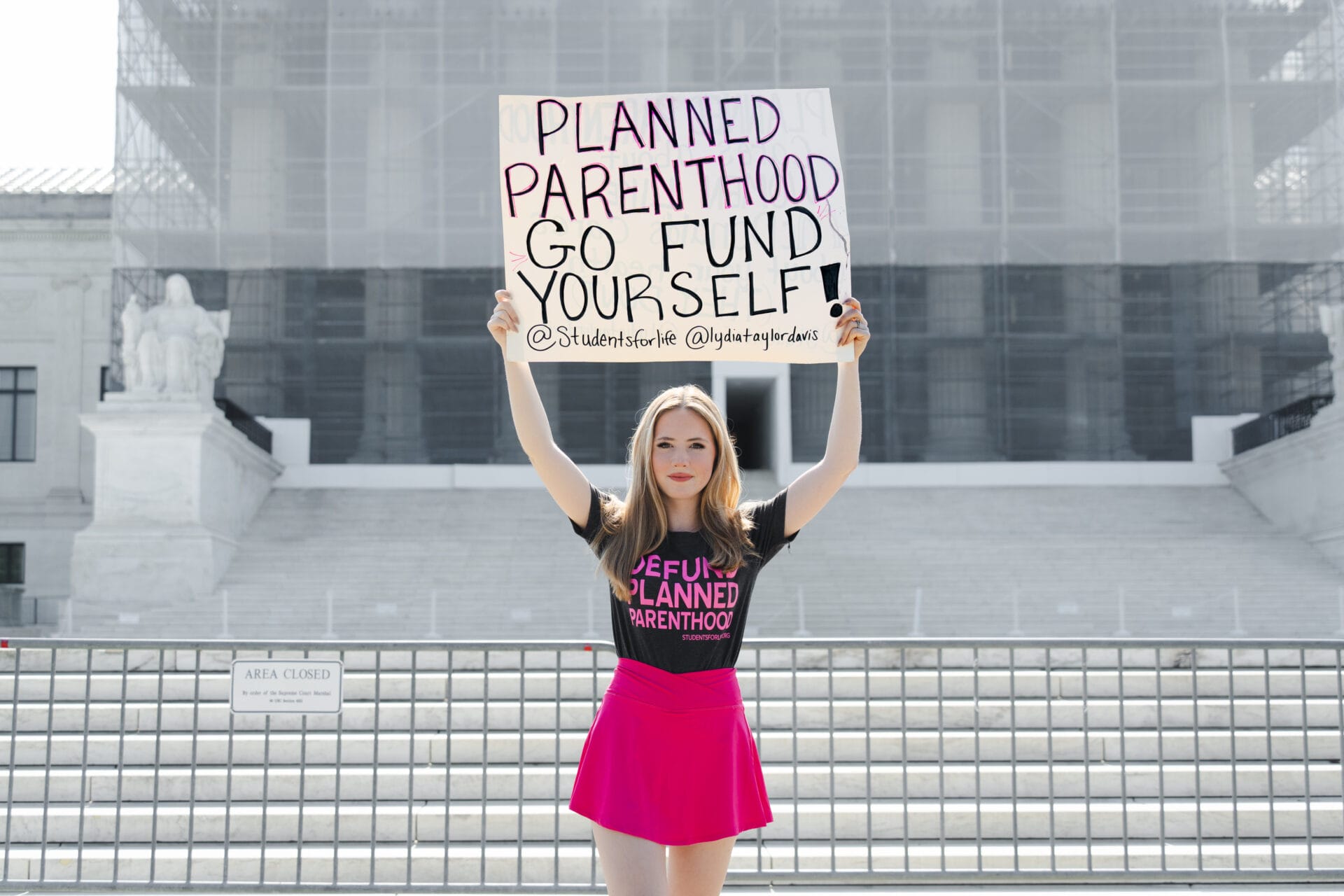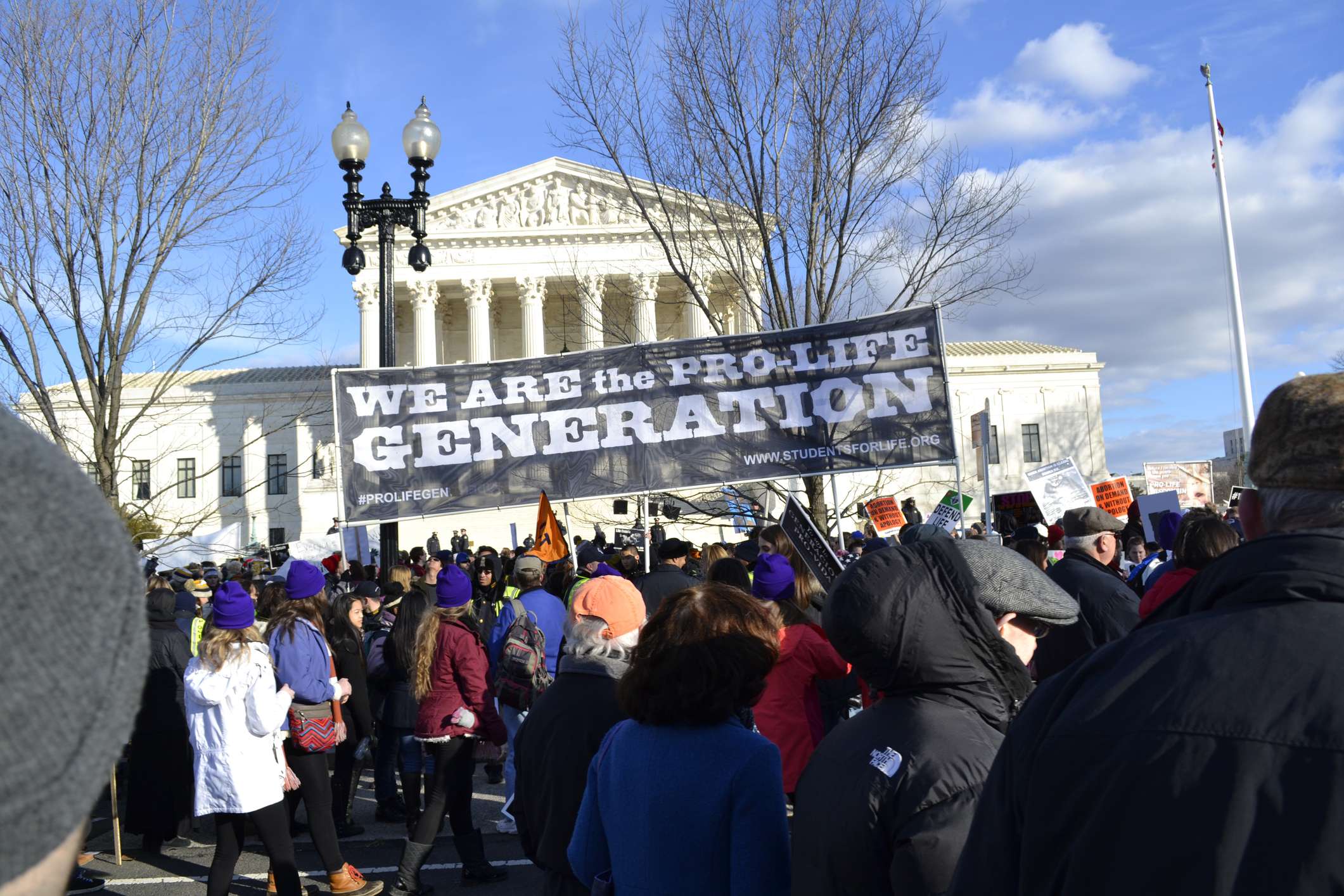
Students for Life of America’s (SFLA) free speech defeat in Noblesville School District prompted organizations to use their free speech to stand by an SFLA school club exercising their freedom to speech to save preborn lives.

In March, Judge Sarah Evans Barker rejected the defense of students’ First Amendment Rights after they were unfairly treated as the school district and officials pivoted on acts of intimidation and deliberate roadblocks, including denial of a by-the-books request for a Students for Life club.
SFLA President Kristan Hawkins called it “an insult to parents” and an apparent show of bias as “Judge Evans Barker has consistently ruled against pro-life litigants. Additionally, Judge Evans Barker is on the board of Indiana University Health, which is an abortion provider in Indiana, as well as Methodist Hospital, which also provides abortions.”

Despite the lawsuit’s rejection by abortion-biased Judge Barker, Noblesville Students for Life has appealed the decision, and other organizations, including SFLA, have their back not just with a tweet or statement of support but instead with five compelling amicus briefs in support of E.D and Noblesville Students for Life, including one from SFLA.
Young America’s Foundation, SFLA, and Indiana Family Institute
The Young America’s Foundation (YAF), SFLA, and the Indiana Family Institute filed one brief focused on the lower court’s order promoting censorship and encouraging other Constitutional violations.

“Instead of holding Noblesville Schools accountable for these infringements, the district court excused the school from liability and even declared that Principal McCaffrey was not a final policymaker for the purpose of Monell liability,” the amicus brief states. “For all of the above reasons, the amici are deeply concerned that the district court’s decision will be used as precedent to censor their right to free speech and association on high school and college campuses.”
13 States
Kansas, Georgia, Idaho, Indiana, Iowa, Louisiana, Mississippi, Missouri, Montana, Nebraska, Oklahoma, South Carolina, and South Dakota filed an amicus brief. It discussed the difference between content-based censorship and viewpoint-based censorship. As the states point out, the events at Noblesville High School appear to be the latter, subject to a higher standard that was not reached in this case. As their amicus brief lays out:
“Free speech in schools begins with the premise that students do not ‘shed their constitutional rights to freedom of speech or expression at the schoolhouse gate.’ Tinker v. Des Moines Indep. Cmty. Sch. Dist., 393 U.S. 503, 506 (1969). While the Supreme Court has found over the years that schools may restrict student speech for various reason, see Bethel Sch. Dist. No. 403 v. Fraser, 478 U.S. 675, 682 (1986), any analysis of such a restriction must begin with acknowledgment that students have First Amendment rights.”
CatholicVote.org Educational Fund
CatholicVote.org Educational Fund argues that the photographic poster that Noblesville Students for Life proposed may only be prohibited if the school can show that the expression would substantially interfere with school operations. This was not the case, as the facts are presented on the record.

This amicus brief relies on Kuhlmeier, which, according to CatholicVote.org’s amicus brief, ruled that “The First Amendment protects their right to ‘express[] their personal views on the school premises,’ Hazelwood School Dist. v. Kuhlmeier, 484 U.S. 260, 266 (1988).” It also relies on Mansky, meaning school officials cannot “adopt a policy precluding nondisruptive student speech under an amorphous standard, such as ‘political expression,’ because that type of undefined, content-based restriction is objectively unreasonable.”
The Foundation for Moral Law
The Foundation for Moral Law argues that the case turns on Tinker and that, even if analysis under Hazelwood was proper, the speech of E.D. and Noblesville Students for Life is protected. The amicus brief stated in part:
“The general argument that Hazelwood prohibits viewpoint discrimination is, as explained by the Eleventh Circuit in Searcy v. Harris, rooted in core First Amendment analysis and the fact that ‘although Hazelwood provides reasons for allowing a school official to discriminate based on content, we do not believe it offers any justification for allowing educators to discriminate based on viewpoint.’”
The Upper Midwest Law Center and Manhattan Institute
Finally, The Upper Midwest Law Center and Manhattan Institute filed an amicus brief focused on the qualified immunity of the school officials. They “urge the Court not to follow those sirens to a First Amendment shipwreck.” It argues that the school officials should be held accountable for their “deliberate decision” to treat E.D. and Noblesville Students for Life differently because of their speech. This brief argues that school officials are not entitled to qualified immunity because they chose to violate established Constitutional law.

SFLA is ready for round two, and we’re happy to have more allies on our side and the side of free speech. Stay tuned for more updates!
Share this post
Recent Posts

National Celebrate Life Weekend Dominates D.C.: Just Look at the Coverage
01 Jul 2025
The Pro-Life Generation REACTS: “Big, Beautiful” Budget Bill Vote One Step Closer to Defunding Planned Parenthood & ALL Abortion Vendors
01 Jul 2025
News: FIVE Lawmakers Recognized for Defending Life
30 Jun 2025

